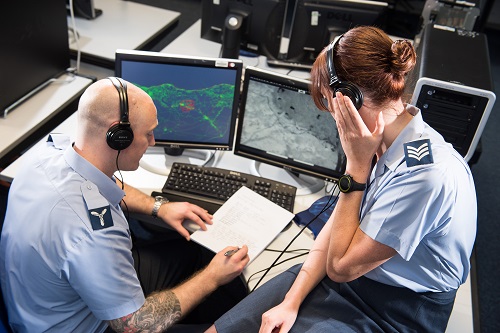Join CIOL and receive formal recognition for your foreign language skills
CIOL and the RAF are working collaboratively through the Language Partner programme to recognise and externally benchmark the foreign language skills of RAF personnel within the Intelligence Analyst (Linguist) and Weapon Systems Operator (Linguist) trades.
RAF personnel will be given access to a full range of benefits and services, commensurate with the grade of membership awarded.
Benefits include:
- Designatory letters for professional membership
- CIOL member logo
- Access to CIOL Mentoring, an online platform matching mentors with mentees
- The Linguist, CIOL's professional journal for language practitioners
- Opportunity to become a Chartered Linguist, giving you enhanced recognition
- Visit www.ciol.org.uk/benefits for the complete list
To apply online, visit ciol.org.uk/join/raf
Under the arrangement, our normal £25 assessment fee is waived; the annual membership fee is on a self-funding basis.
The Language Partner scheme provides membership for trainee linguists and practising linguists as follows:
| CIOL Membership grade | Status of Language training/use | Fees |
|---|---|---|
| Student Affiliate | Language trainee (Phase 2 ab initio or Phase 3 conversion) | Free |
| Affiliate | Up to three years trained service | £85.00 |
| Associate | Greater than three years trained service or on achievement of Portfolio Level 1, but less than five years | £117.00 |
| Member | Greater than five years trained service or on achievement of Portfolio Level 2, but less than ten years | £129.00 |
| Fellow | Greater than ten years trained service or on achievement of Portfolio Level 4, but subject to amplifying criteria* |
£155.00 |
* RAF linguists with more than ten years trained service can apply for fellowship if they meet the following criteria:
- Qualifications/training in the non-native language (minimum professional level in accordance with the STANAG framework)
- Experience using the non-native language – specifically level of responsibility
- Evidence of supporting the language professions for example, mentoring trainee linguists

